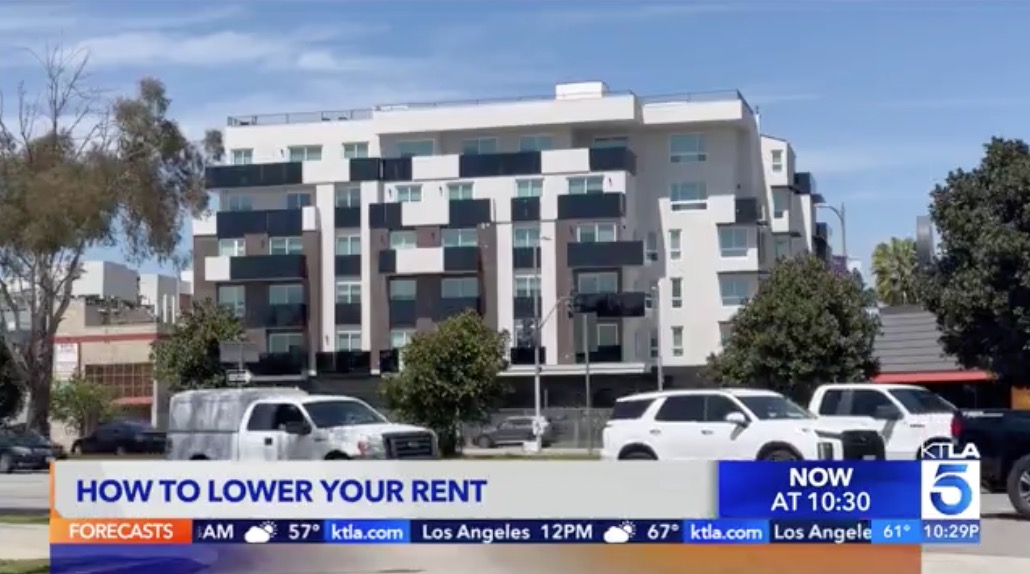There’s no doubt about it: living with other people comes with challenges. If you’re moving in with roommates, you might be wondering how to avoid conflict. Maybe you’re thinking about setting ground rules or making a chore chart. A roommate agreement is another way of cutting down on potential problems. We’re here to explain exactly what they are and how to write one. We’ll even give you a checklist to use!
What is a Roommate Agreement?
A roommate agreement is a document that outlines the rules of your rental and the responsibilities of the tenants. You and your roommates write this document together before you move in, as you’re discussing what your living situation will look like. A roommate agreement doesn’t have anything to do with your landlord or your property manager. It’s only between the tenants in the living situation.
The hope is that by writing down the decisions that you come to about what the ground rules are in the rental, there will be less conflict between you and your roommates. If there is a disagreement or a misunderstanding, you can refer back to the document in order to figure out what the rules really are.
Different Types of Roommate Agreements
Roommate agreements can be legally binding, but they don’t have to be. Let’s go over the different kinds.
You may want to write a legally binding roommate agreement, where you draw up a formal contract and sign your names. This might be the route to go if you have a roommate you don’t know well, because it serves as a backup plan if your roommate tries to lie or steal. To make the agreement legally binding, you would have to note your full names and address on the top of the contract. You’d also want to note your move-in date, the length of your lease, the rent, your security deposit, and your landlord.
If you know your roommate well, you might not feel the need to draw up a legally binding agreement. In that case, a roommate agreement can simply be a list of basic rules and responsibilities that the two of you will follow together. You wouldn’t necessarily need to sign something like this, and wouldn’t need all of the extra information to make it legal. It can be helpful to have something in writing no matter what the case is, just to make things clear.
What Should a Roommate Agreement Include?
So what exactly should be in a roommate agreement? We’ve gone over what to put in to make sure that the agreement is legally binding if that’s something you want. But here’s a basic list of things you might include in a roommate agreement:
Logistics
Rent: Who is paying what portion of the rent? Maybe you’ll split it equally. Or will it be proportional to your income? Or maybe the person with the biggest room will pay the larger share? This is one of the first things that you’ll want to talk over with your roommate, of course, and it’s also one of the touchiest because it has to do with money. That’s why it helps to get it in writing so that there’s no confusion.
Security deposit: Yep, this too. Who’s paying what portion?
Utilities: Just like the rent, you want to get this in writing if it’s not covered in your rent. Will you switch off as to who pays the utilities each month? What about dividing the utilities up by who is using them? Will you split them evenly? This is something to consider beforehand.

Dividing up space: Who will get what room in the rental? If there’s an office, who gets it, or will you share it? How will closets be divided? It can be important to have your own personal space when you’re sharing a rental with someone else, so you’ll want to be clear on how each space will be allocated, or if they’ll be communal. You’ll be less likely to have disputes about this down the line if you figure it out in the document.
Personal Preferences
Chores: Some of the most common arguments between roommates concern chores. Making sure everyone understands what their responsibilities to the rental are will help to avoid conflict. Think about what work needs to be done to keep the rental clean and running smoothly, and then work to divide it up. You can consider everyone’s preferences for what kinds of chores they like to do, who uses which appliances the most, and everyone’s schedules. Creating a chore chart is never a bad idea. You’ll also want to consider what to do if someone doesn’t do their share of the chores, especially if it becomes a repeated problem.
Pets: If one of you has a pet, taking care of it and cleaning up after it should go in the agreement. What rooms of the rental will the pet be allowed in? How often will it be groomed? Who will be responsible for cleaning the pet’s messes and feeding it? Who pays for damages caused by the pet? What happens if the neighbors complain? Maybe the pet has one owner who does all of these things, or maybe the pet’s care will go on the communal chore chart. It’s up to you.
Guests: You and your roommates will need to discuss what your rules will be around guests in your rental. Will overnight guests be allowed? How often? Does this have to be discussed beforehand when it happens? What if someone wants to throw a party? How many people can be invited? Consider these questions as you talk about having guests over.
Noise levels: You’ll also want to consider rules around when you and your roommates can play music or make a loud noise. Maybe you’ll institute quiet hours or designated spaces for music. It’s also worth considering how you’ll handle disputes concerning someone being too loud, and how to handle this if it becomes a repeat offense. The trend toward working from home makes this issue more critical than ever before.
Moving Out
Moving out early: What if someone wants to move out early? Will they have to sublet to someone else? Will they just pay the rest of their share of the rent for the remainder of the lease? Take some time to think about what that might look like. You never know what kind of situation might arise.
We hope that this post helps you understand what roommate agreements are and why they can be so helpful. Best of luck as you make your rental a happy home!
Need a new home? Dwellsy has your back.
Check out our other blog posts.








